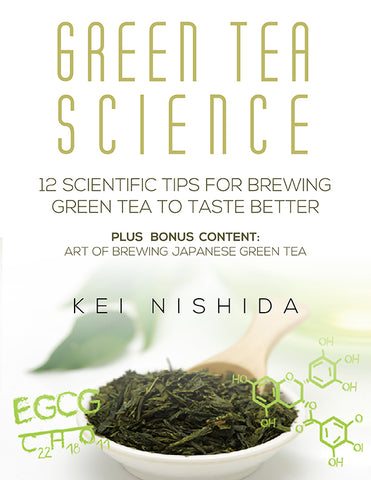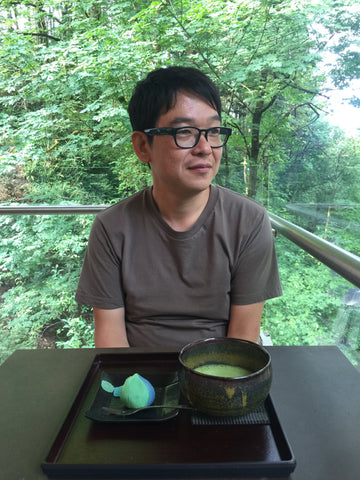Benifuuki Japanese Green Tea Naturally Heals Mast Cell Activation Syndrome (MCAD)

Those living with Mast Cell Activation Syndrome can find it difficult to find relief from their pervasive and often debilitating symptoms. This serious and chronic disease often baffles medical professionals who find it difficult to diagnose and identify triggers for.
The traditional approach for treating MCAD is through diphenhydramine such as Benadryl or hydroxyzine.
Unfortunately, the side effects of using diphenhydramine are often not much better than those caused by the disease itself. Ranging from dizziness to digestive issues and drowsiness, the treatment may feel conflated with side effects from the disease.
Those looking for relief from MCAD may find themselves feeling helpless when regarding the options available to them. However, there is a more natural approach that may appeal to those suffering the lifelong effects of MCAD. Benifuuki green tea is being used more and more to alleviate the effects of MCAD, with the practice starting in Japan and gaining momentum in recent years.
There are many reasons to choose a more holistic approach to alleviating the symptoms of a serious disease. Freeing oneself from the obligation to more traditional medicine may be the right choice for you if you're looking to be kind to your body and not exacerbate any of the already serious symptoms you are experiencing due to your disease.
What is Benifuuki?
Benifuuki is a relatively new type of Japanese green tea was first created in 1965 when the tea cultivars Assamica and Sinensis were cross-bred in Japan. It has quickly been categorized as one of the most effective green teas for fighting allergens. Tea brewed from the Benifuuki plant is produced by utilizing the entire plant, leaves and flowers all, to brew a unique and powerful strain of tea.
This cultivar is rich in methylated catechins, an active ingredient in many green teas known to inhibit mast cell response to allergens. Scientists have shown that methylated catechins in particular one type called EGCG can specifically inhibit activation of mast cells so they do not release their contents in response to allergens or other stimuli.
Methylated catechin levels in Benifuuki teas are extremely high, leading researchers to believe Benifuuki to be one of the most impactful teas for drinkers in terms of its effects on health.
In order to cultivate mass amounts of these effective catechins in the Benifuuki cultivar, strains are fermented and stored for at least 3 months. The powerful plant is, therefore, most effective if digested toward the end of its lifespan.
However, it is warned that because there are such large amounts of catechins present within the Benifuuki strain, the tea should not be consumed on an empty stomach. It should also not be allowed to steep in hot work for long periods of time before consumption, as the plant’s toxicity levels could possibly increase.
The plant is gaining popularity worldwide as a homeopathic cure to multiple conditions, with great effect. It is easily accessible and a great solution for those looking for relief from the constraints imposed upon them by medical insurance in relation to medications they are able to expense.
Small amounts of Benifuuki go a long way. It is not necessary or recommended for drinkers to ingest Benifuuki daily, making it an uncomplicated and powerful solution to chronic symptoms caused by MCAD.
In fact, Benifuuki is so powerful and diverse in its effects, drinkers looking to relieve themselves of MCAD symptoms may also find themselves benefitting from improved health overall, even outside of their disease.
Benifuuki is also good for hay fever, dermatitis, eczema, histamine reduction, Diet-Induced Lipid Metabolism Disorder, Gaucher Disease, and Tay-Sachs disease as well. The methylated catechins present in Benifuuki have many and varied health effects, making it a multi-faceted cure.
What is Mast Cell Activation Syndrome(MCAD)?
Mast Cell Activation Syndrome (MCAD) is an incurable disease that is often difficult to diagnose. Symptoms and causation of the disease can vary greatly.
MCAD is caused by inappropriate mast cell activation, causing a wide variety of negative symptoms. Problems caused by MCAD constitute dermatological problems from hives, itching, easy bruising, and a change in complexion.
Cardiovascular effects of MCAS may include vertigo and an increased resting heart rate. MCAD may also cover gastrointestinal problems, vision issues, and respiratory conditions including congestion, wheezing, and sleep apnea.
A few of the psychiatric effects of MCAD include debilitating headaches, fogginess leading to memory dysfunction and recall, as well as anxiety, depression, mood swings, and more.
The symptoms of MCAD are so varying, they can be difficult to attribute to MCAD. What’s more, MCAD triggers vary greatly as well, with stressors ranging from foods, fragrances, stress, exercise, various chemicals, and more.
In fact, because the triggers for MCAD can seem mundane, those with MCAS may find themselves discovering additional triggers after years of living with the disease.
As this disease is varied in triggers and symptoms, difficult to diagnose and impossible to cure, those with MCAD find themselves with a difficult road ahead of them. MCAD sufferers’ only recourse is to find solace in temporary solutions that they can only hope will slightly alleviate their symptoms.
The results of MCAD vary greatly person to person, but increased amounts of lipids and histamines are culprits of some of the more serious repercussions of the disease. Traditional treatments of MCAD rely heavily on blocking mast cell responses which are dysfunctional in those living with MCAD.
Mast cell dysfunction presents itself in the less serious form of allergies. MCAD works similarly to allergies in that it is caused by varying triggers and is not always present. It is, however, always dormant within the sufferer. This means that unlike those suffering from, say, pollen-based allergies, they will likely not find any seasonal relief from their symptoms.
Symptoms of MCADs tend to wax and wane and gradually get worse over time. They involve most systems throughout the body. Some of the major symptoms include:
Hives
Itching
Dizziness and fainting
Irregular heartbeat
Diarrhea and/or constipation
Difficulty swallowing
Burning sensations in the bladder
Headaches
Memory dysfunction and cognitive difficulties
Psychiatric and behavioral symptoms
Coughing and wheezing
Fatigue
Why Benifuuki Works With MCAD
The methylated catechins which permeate Benifuuki tea are popular with allergy sufferers because they help to block mast cell response. The effects of Benifuuki on mast cells are beneficial to those suffering from MCAD and may provide some of the only preventative relief to those suffering from the disease.
Moreover, these same methylated catechins can help those suffering from MCAD to properly process excess lipids and histamines which their disease prevents them from being able to accomplish on their own.
Improper mast cell activation, coupled with excess lipids and histamines, can lead to a wide variety of serious consequences from digestive issues to mental fog and depression.
Therefore, any relief from these misfirings that can be provided by methylated catechins present in Benifuuki tea cannot be understated. Even nominal relief from excess lipids can make a world of difference indigestion, for example.
Benifuuki Strongly Inhibits Mast Cell Activation
Mast cells play an important part in normal bodily regulatory processes. In healthy persons, mast cells function to heal wounds and work within the immune system to fix pathogens.
In those suffering from allergies, mast cell inhibition can help provide relief for their symptoms. For those living with MCAD, the mast cell inhibiting properties of Benifuuki tea can potentially be life-changing.
While the methylated catechins present in Benifuuki cannot cure MCAD, they can help alleviate symptoms. Benifuuki contains more methylated catechins than any other strain of tea, meaning those looking for any sort of relief, homeopathic or otherwise, would do well to try Benifuuki’s effects for themselves.
Benifuuki Has Lipid-Lowering Effects
Another benefit of the methylated catechins present in Benifuuki is its effect on lipids. Those with MCAD can find themselves having difficulty breaking down fats. Because of this, the process of converting food into energy is disrupted, resulting in dangerously low blood sugar.
Those with MCAD have difficulty processing and breaking down fats and lipids, resulting in dangerous excess. When this happens, digestive issues and lethargy abound. Those undiagnosed or newly diagnosed with MCAD may not even recognize these as part of their disease, an example of the discreetly destructive nature of the disease.
Luckily, Benifuuki green tea can greatly lower lipids in the body. Casual drinkers look to this strain of green tea for weight loss benefits, but those suffering from MCAD can experience great relief through drinking Benifuuki.
The methylated catechins strongly present in Benifuuki provide these effects, but scientists warn that those unaccustomed to drinking tea with such high levels of catechins may find it difficult to stomach high amounts of the tea. In order to fully feel the full effects of the catechins and their relation to lipids, drinkers should be sure to drink Benifuuki regularly, yet sparingly.
Therefore, drinkers looking to regulate their lipid levels should work their way up to drinking high amounts of Benifuuki over time. Start with nominal amounts and work your way up to becoming a seasonal Benifuuki drinker in order to feel the tea’s full effects.
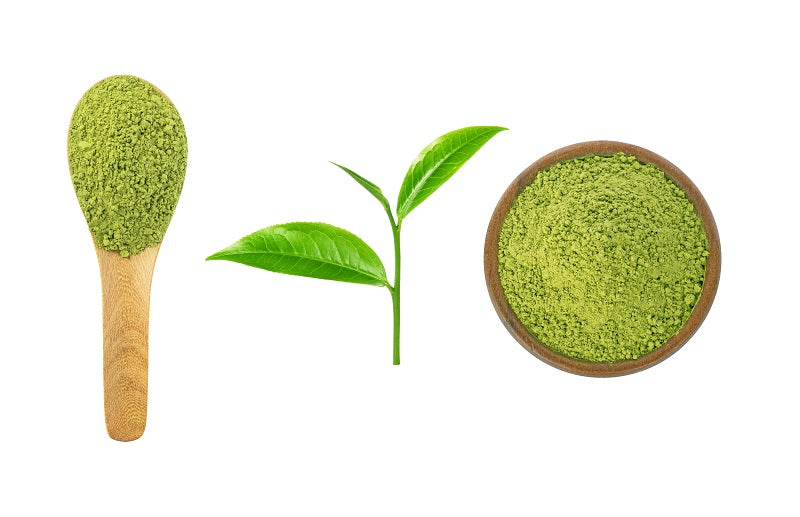
Benifuuki Reduces Histamine Levels
Histamines are indispensable chemicals for the human brain. Histamines facilitate communication with the brain and overall digestion.
Dysfunctional histamine processing can lead to a variety of medical problems including fatigue, vomiting, cramping, high blood pressure, anxiety, and more. Many of these symptoms match up with symptoms of MCAD. This is because what many physicians may originally believe to be histamine intolerance is actually a form of MCAD. Histamine intolerance is just one of many conditions MCAD can be easily conflated with, due to the similarity of their symptoms and similar causation.
MCAD can lead to histamine intolerance, although histamine intolerance itself can exist outside of MCAD. Symptoms of histamine intolerance are aggravated by foods high in histamines. Those with the condition find their mast cells to be overactive and do not allow them to process histamines correctly.
The aforementioned core component of Benifuuki strain green tea methylated catechins helps to reduce histamine levels within the body. Because those with MCAD find themselves unable to process histamines correctly, leading to all sorts of medical complications, Benifuuki catechins once again prove to be invaluable to treating the condition.
Methylated catechins cannot help the body to relearn how to process histamines correctly, just as they cannot provide lasting effects in regards to lipids or mast cells, but they can aide the body in ridding itself of excess.
This sort of removal is the closest MCAD suffers can come to any sort of restoration of these proper bodily functions.
Benifuuki is good for Liver
Another beneficial characteristic of Benifuuki is its effect on the liver. The liver is the primary organ in the body that processes fats and lipids. If dietary cholesterol is insufficient, the liver synthesizes cholesterol and releases it into the bloodstream. The liver also breaks down fats and converts them into glucose, which is released into the bloodstream for use as immediate energy to fuel the body's activities.
In a normal, healthy body, the liver tightly regulates levels of serum lipids and breaks down excess fat into glucose. However, in response to chronic inflammation induced either by an unhealthy diet or other causes, the liver starts to malfunction. It becomes unable to tightly regulate serum lipid levels, and thus elevations in LDL and triglycerides may occur while HDL levels plummet. Instead of the liver breaking down excess dietary fat, it is stored at various places in the body (such as the abdomen) and fat is also stored in the liver, creating a fatty liver, which further perturbs liver function.
Benifuuki green tea's ability to reduce global inflammation in the body also seems to have a beneficial effect on liver function, prompting the liver to reverse course and start to process lipids in a more normal way. This can be beneficial for both weight loss, by allowing the metabolism to clear excess fat out of the body, and it can also restore the serum lipid levels to a healthier profile. In addition, the processes that lead to the formation of a fatty liver may begin to reverse in response to Benifuuki, further improving liver function.
An interesting side effect of the high levels of methylated catechins in Benifuuki is that this tea plant is naturally resistant to most plant diseases. Most tea plants require the use of chemical pesticides and fungicides during production, which means the resulting tea is probably contaminated with residual chemicals from these products. However, not Benifuuki. It can be grown without the need for any chemical applications, which is good for both the environment and the consumer.
What Are the Side Effects of Benifuuki?
As a natural green tea, Benifuuki has never been observed to have any side effects. It is a refreshing beverage that can be enjoyed several times a day, aiding in hydration as well as in reducing inflammation and providing the many health benefits of regular green tea consumption. Due to its high levels of methylated catechines, Benifuuki has a more bitter taste than most other green teas, but many consumers enjoy its bitterness. When Benifuuki was first developed, it was practically inedible due to its extreme level of bitterness, but cultivation methods that involve growth in soil from sugar canes and mulching with vegetation from natural grasslands have reduced its bitter flavor to a level that is enjoyable without affecting its medicinal qualities.
Casual drinkers of Benifuuki enjoy it for the allergy-numbing effects it provides, as well as the metabolic regulation. Drinkers will enjoy clearer skin, better digestion, and increased energy by incorporating Benifuuki into their diets regularly.
Benifuuki has many beneficial effects in terms of health. However, as with all powerful medical solutions, drinkers should be sure to take a few precautions.
As briefly mentioned earlier, waiting too long to drink Benifuuki after it has been brewed can be dangerous. This is because chlorophyll can build up over time, raising the tea’s toxicity to potentially dangerous levels if it has sat out too long or the tea’s leaves have remained within the tea after it has been prepared.
An important aspect of Benifuuki is that it is brewed with both the leaves and flowers, but brewers should not forget to remove the toxic leaves.
Additional Benifuuki-related nausea is easily circumvented by making sure to drink the tea soon after it has been brewed.
Ensure you are not drinking Benifuuki on an empty stomach, and follow it up with large amounts of water in order to minimize any potential liver damage from the powerful catechins.
Conclusion
Benifuuki Japanese green tea is a delightful, refreshing, bitter tea made from the tea cultivar Benifuuki. This tea cultivar has a very high concentration of methylated catechines, in particular one called ECGC. ECGC is able to block mast cell activation by allergens and the many stimuli that activate mast cells in individuals with MCADs. Activated mast cells normally release large amounts of histamines that trigger the symptoms familiar to allergy sufferers worldwide. In individuals with MCADs, their mast cells abnormally release histamines throughout their bodies, causing a wide range of unpleasant symptoms. Consuming Benifuuki on a regular basis blocks mast cells from releasing histamines, which naturally relieves the symptoms of allergies and MCADs without any side effects.
In addition to its effects on mast cells, Benifuuki can help relieve other conditions caused by chronic inflammation. Its high levels of methylated catechines can reverse dysfunction of the liver, thus restoring the liver's ability to process lipids and fats. Once restored to a more normal function, the liver can reduce levels of unhealthy blood lipids and can metabolize fats, promoting weight loss, alleviating cardiovascular risk factors, reducing the effects of metabolic syndrome, and reversing the processes causing fatty liver.
In brief, Benifuuki is a healthful addition to any person's day whether they suffer from allergies/MCADs or not.
Related Articles You May Be Interested In
Get Free Download
If you have ever thought that Green Tea is an “acquired taste” or that it is “too bitter” to enjoy, we’re here to change your mind! We want everyone to experience the health benefits of Green Tea and show you that this can be an amazing, refreshing, and delicious drink when made correctly. With just a few tips on how to brew this powerful leaf, we can change your mind about the taste and enjoyment of drinking Green Tea.
Don’t miss out on the health benefits of tea!
- Improve health
- Increase brain function
- Regulate weight
- Lower your risk of cancers
- Reduce risk of heart disease
- Lowers risk of diabetes
We know that you will love this tips to brewing tea and getting the most flavor and elegance out of every cup. Sign up for our newsletter and get this great informative manual on brewing green tea. You will learn what it is that makes it one of the most popular beverages in the world.
The E-Book also includes the chapter of Kei Nishida's book, "Art of Brewing Japanese Green Tea" where he teaches you how to brew hot and cold Japanese Green Tea.
Also in Japanese Green Tea Lovers in India
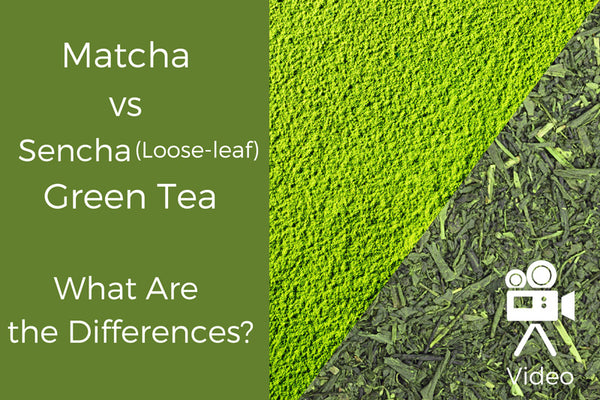
TYPES OF TEA: MATCHA VS SENCHA GREEN TEA: WHAT ARE THE DIFFERENCES?
When it comes to different types of tea, matcha and sencha green tea are two many people have questions about! Get answers in this post.
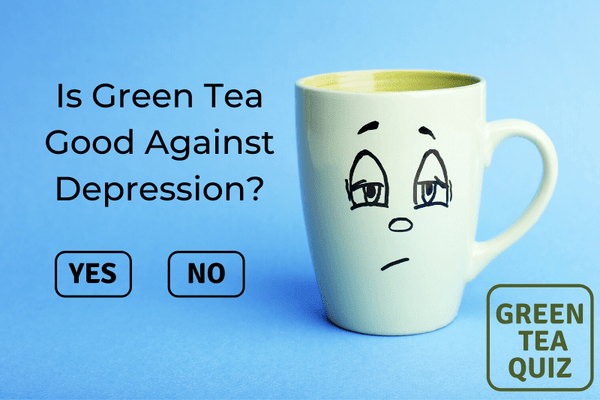
Is Green Tea Good Against Depression?

What is the best way to store your matcha & Japanese green tea?
5 Essential Storage Rules for Matcha and Japanese Green Tea
Read on to learn how to store matcha the proper way to ensure that you get the most out of this ancient elixir.





